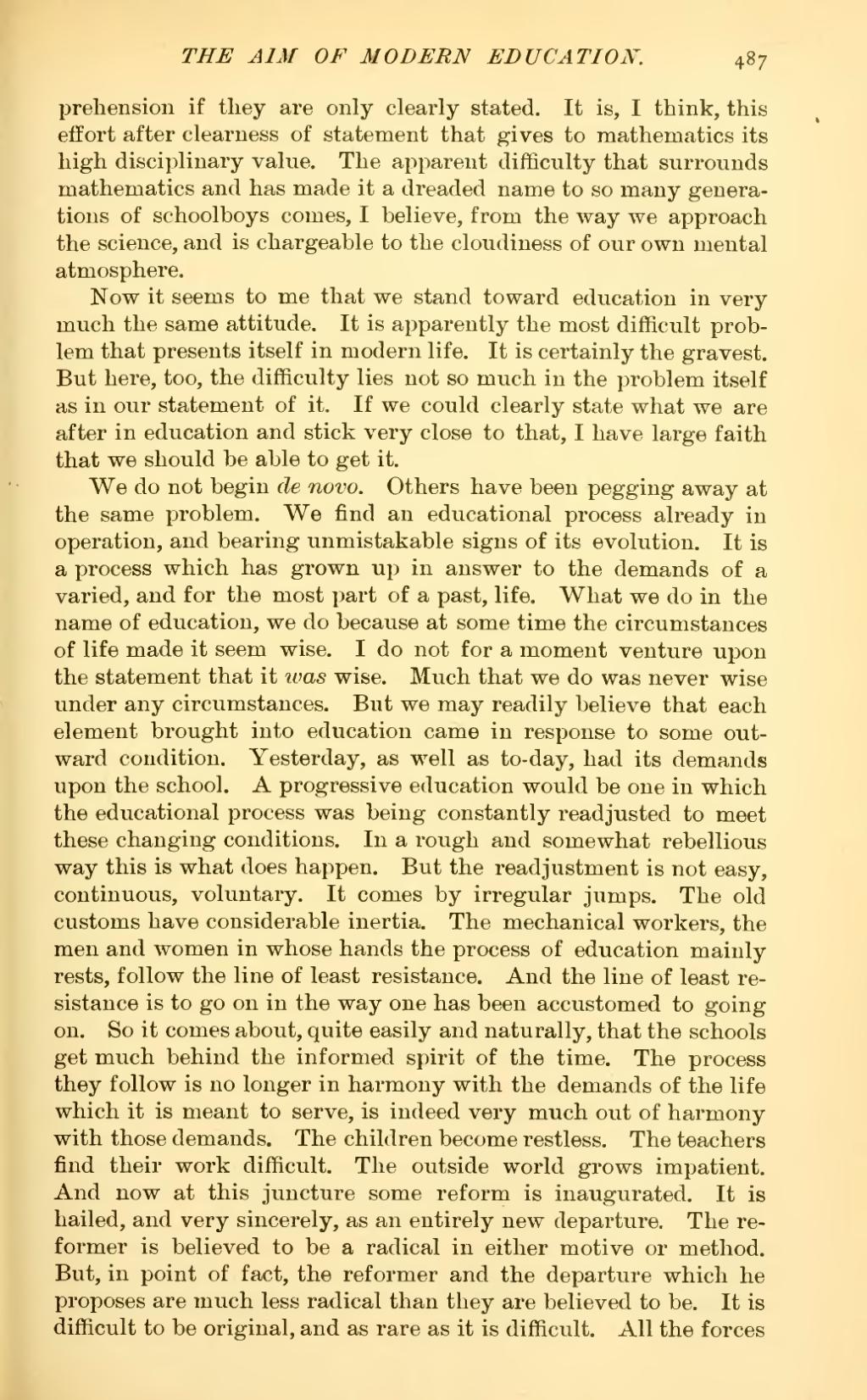prehension if they are only clearly stated. It is, I think, this effort after clearness of statement that gives to mathematics its high disciplinary value. The apparent difficulty that surrounds mathematics and has made it a dreaded name to so many generations of schoolboys comes, I believe, from the way we approach the science, and is chargeable to the cloudiness of our own mental atmosphere.
Now it seems to me that we stand toward education in very much the same attitude. It is apparently the most difficult problem that presents itself in modern life. It is certainly the gravest. But here, too, the difficulty lies not so much in the problem itself as in our statement of it. If we could clearly state what we are after in education and stick very close to that, I have large faith that we should be able to get it.
We do not begin de novo. Others have been pegging away at the same problem. We find an educational process already in operation, and bearing unmistakable signs of its evolution. It is a process which has grown up in answer to the demands of a varied, and for the most part of a past, life. What we do in the name of education, we do because at some time the circumstances of life made it seem wise. I do not for a moment venture upon the statement that it was wise. Much that we do was never wise under any circumstances. But we may readily believe that each element brought into education came in response to some outward condition. Yesterday, as well as to-day, had its demands upon the school. A progressive education would be one in which the educational process was being constantly readjusted to meet these changing conditions. In a rough and somewhat rebellious way this is what does happen. But the readjustment is not easy, continuous, voluntary. It comes by irregular jumps. The old customs have considerable inertia. The mechanical workers, the men and women in whose hands the process of education mainly rests, follow the line of least resistance. And the line of least resistance is to go on in the way one has been accustomed to going on. So it comes about, quite easily and naturally, that the schools get much behind the informed spirit of the time. The process they follow is no longer in harmony with the demands of the life which it is meant to serve, is indeed very much out of harmony with those demands. The children become restless. The teachers find their work difficult. The outside world grows impatient. And now at this juncture some reform is inaugurated. It is hailed, and very sincerely, as an entirely new departure. The reformer is believed to be a radical in either motive or method. But, in point of fact, the reformer and the departure which he proposes are much less radical than they are believed to be. It is difficult to be original, and as rare as it is difficult. All the forces

